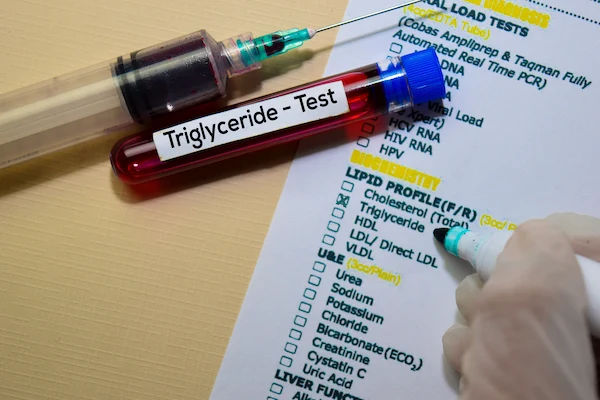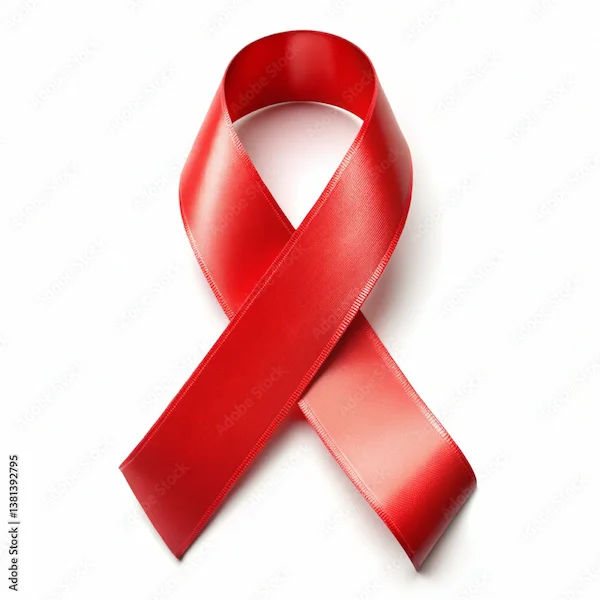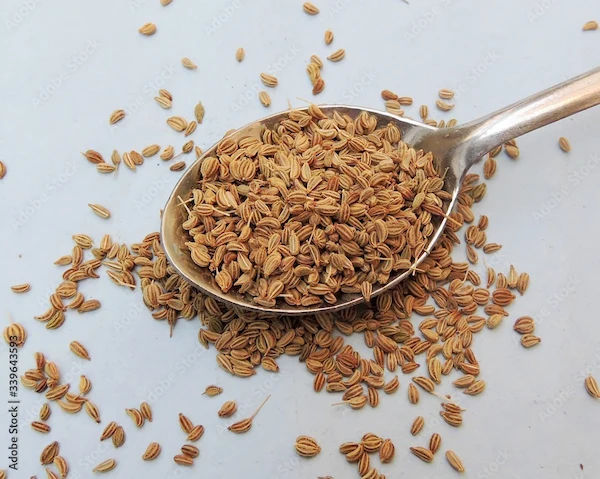Control Your Triglycerides Effectively.
Effectively control your triglycerides and lower your risk of heart disease with proven strategies. Discover key dietary changes, essential lifestyle adjustments, and when medical intervention might be necessary for optimal health.

Written by Dr. Rohinipriyanka Pondugula
Reviewed by Dr. Dhankecha Mayank Dineshbhai MBBS
Last updated on 28th Jul, 2025

Triglycerides are a type of fat (lipid) found in your blood. While your body needs some triglycerides for energy, high levels can increase your risk of heart disease, stroke, and other health problems. The good news is that with the right lifestyle changes and medical guidance, you can manage your triglyceride levels effectively.
Understanding Triglycerides
Triglycerides come from the food you eat—especially fats, oils, and sugars. Your liver also produces them when you consume extra calories that your body doesn’t immediately need. These fats are stored in fat cells and released later for energy.
Normal triglyceride levels are:
- Less than 150 mg/dL – Healthy
- 150-199 mg/dL – Borderline high
- 200-499 mg/dL – High
- 500 mg/dL and above – Very high
If your levels are high, it’s important to take action to bring them down.
Symptoms of High Triglycerides
The common symptoms include:
- High triglycerides usually don’t cause noticeable symptoms, which is why they’re often called a "silent" condition. However, extremely high levels (above 1000 mg/dL) can lead to:
- Pancreatitis (inflammation of the pancreas) – causing severe stomach pain, nausea, and vomiting.
- Fatty deposits under the skin (xanthomas) – small, yellowish bumps on elbows, knees, or hands.
Since symptoms are rare, regular blood tests are the best way to monitor your triglyceride levels.
What Causes High Triglycerides?
Several factors can contribute to high triglycerides, including:
- Unhealthy diet – Eating too many refined carbs (white bread, sweets), sugary drinks, and unhealthy fats (fried foods, processed snacks).
- Lack of exercise – Physical inactivity slows down fat metabolism.
- Obesity – Excess weight increases triglyceride production.
- Alcohol consumption – Even moderate drinking can raise triglyceride levels.
- Diabetes and insulin resistance – Poor blood sugar control affects fat metabolism.
- Hypothyroidism – An underactive thyroid can lead to higher triglycerides.
- Certain medications – Some steroids, diuretics, and hormone treatments may increase levels.
- Genetics – Some people inherit a tendency for high triglycerides.
How High Triglycerides Affect Your Health?
Elevated triglycerides contribute to:
- Hardening of arteries (atherosclerosis) – Increases the risk of heart attacks and strokes.
- Metabolic syndrome – A combination of high blood pressure, high blood sugar, excess belly fat, and abnormal cholesterol levels.
- Liver disease – Excess fat can accumulate in the liver, leading to fatty liver disease.
- Pancreatitis – Very high levels can trigger dangerous inflammation.
How to Lower Triglycerides Naturally?
The best way to manage triglycerides is through lifestyle changes:
1. Eat a Heart Healthy Diet
- Reduce sugar and refined carbs – Cut back on sweets, sodas, white bread, and pastries.
- Choose healthy fats – Eat more omega3rich foods (fatty fish like salmon, walnuts, flaxseeds) and avoid trans fats (found in fried and processed foods).
- Increase fiber – Whole grains, fruits, vegetables, and legumes help lower triglycerides.
- Limit alcohol – Even small amounts can raise triglycerides, so moderation is key.
Consult Top General Physician
2. Exercise Regularly
- Aim for at least 30 minutes of moderate exercise (brisk walking, cycling, swimming) most days of the week.
- Physical activity helps your body burn triglycerides for energy.
3. Lose Excess Weight
- Shedding even 5-10% of your body weight can significantly lower triglycerides.
4. Manage Underlying Conditions
- Control diabetes and prediabetes – Keep blood sugar levels in check.
- Treat hypothyroidism – If you have an underactive thyroid, medication can help.
5. Quit Smoking
- Smoking worsens cholesterol and triglyceride levels, so quitting improves heart health.
When to Seek Medical Help?
If lifestyle changes aren’t enough, your doctor may prescribe medications such as:
- Statins – Lower cholesterol and triglycerides.
- Fibrates – Specifically target high triglycerides.
- Omega-3 supplements – High dose fish oil can help reduce levels.
When to Get Tested?
- If you have a family history of high triglycerides or heart disease.
- If you have diabetes, obesity, or metabolic syndrome.
- If you experience symptoms like unexplained abdominal pain (possible pancreatitis).
You can easily book a lipid profile test through Apollo 24|7 to check your triglyceride levels and get expert advice.
Final Thoughts
High triglycerides are manageable with the right diet, exercise, and medical support. Small, consistent changes can make a big difference in protecting your heart and overall health. If you’re concerned about your levels, consult a doctor for personalized guidance.
Stay proactive—your heart will thank you!
Consult Top General Physician
Consult Top General Physician

Dr. Syed Ismail Ali
General Practitioner
7 Years • MBBS
Hyderabad
Apollo 24|7 Clinic, Hyderabad

Dr. Md Yusuf Shareef
General Practitioner
8 Years • MBBS
Hyderabad
Apollo 24|7 Clinic, Hyderabad

Dr. Syed Yaseen Ahmed
General Practitioner
7 Years • MBBS
Hyderabad
Apollo 24|7 Clinic, Hyderabad

Dr. Immanuel Raj
General Practitioner
8 Years • MBBS. MBA (HHSM)
Visakhapatnam
Apollo 24|7 Clinic - Andhra Pradesh, Visakhapatnam

Dr Summaiya Banu
General Practitioner
8 Years • MBBS
Hyderabad
Apollo 24|7 Clinic, Hyderabad
(150+ Patients)
Consult Top General Physician

Dr. Syed Ismail Ali
General Practitioner
7 Years • MBBS
Hyderabad
Apollo 24|7 Clinic, Hyderabad

Dr. Md Yusuf Shareef
General Practitioner
8 Years • MBBS
Hyderabad
Apollo 24|7 Clinic, Hyderabad

Dr. Syed Yaseen Ahmed
General Practitioner
7 Years • MBBS
Hyderabad
Apollo 24|7 Clinic, Hyderabad

Dr. Immanuel Raj
General Practitioner
8 Years • MBBS. MBA (HHSM)
Visakhapatnam
Apollo 24|7 Clinic - Andhra Pradesh, Visakhapatnam

Dr Summaiya Banu
General Practitioner
8 Years • MBBS
Hyderabad
Apollo 24|7 Clinic, Hyderabad
(150+ Patients)




.webp)